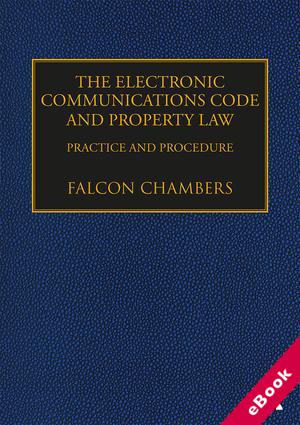
The device(s) you use to access the eBook content must be authorized with an Adobe ID before you download the product otherwise it will fail to register correctly.
For further information see https://www.wildy.com/ebook-formats
Once the order is confirmed an automated e-mail will be sent to you to allow you to download the eBook.
All eBooks are supplied firm sale and cannot be returned. If you believe there is a fault with your eBook then contact us on ebooks@wildy.com and we will help in resolving the issue. This does not affect your statutory rights.
Life without access to electronic telecommunications would be regarded as highly unsatisfactory by most of the UK population. Such ready access would not have been achieved without methodical and ultimately enforceable means of access to the land on which to install the infrastructure necessary to support the development of an electronic communications network. Successive Governments have made such access a priority, regarding it as a principle that no person should unreasonably be denied access to an electronic communications network or electronic communications services. The enactment of the Telecommunications Act 1984 and its revision by the Communications Act in 2003 have played their role in the provision of an extensive electronic infrastructure in the UK, while their reshaping by means of the Digital Economy Act 2017 will continue that process. Throughout that process, a little publicised series of struggles has taken place between telecommunications operators and landowners, as they seek to interpret the Electronic Communications Code, by which their rights and obligations have been regulated.
This book describes the problems that accompanied the old Code (which will continue to regulate existing installations and agreements) and the intended solutions under the new Code. The eminent team of authors explain the background, provisions and operation of the current Code and the new one, providing practical and jargon free guidance throughout. It is sure to become the reference on this topic and is intended as a guide for telecommunications operators, land owners, and of course for their advisers in the legal and surveying professions.